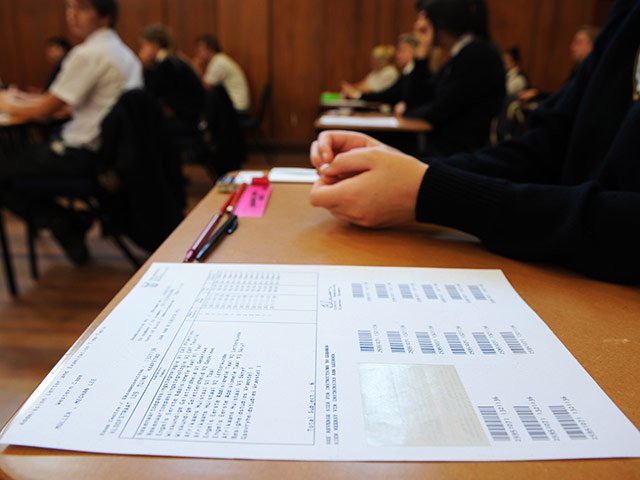Matrics sit for first final exam
Updated | By News24
The Basic Education Department is ready for the beginning of matric exams across the country, with over 800 000 students registered to write.

In a statement the department said its national senior certificate (NSC) examinations will begin today and end on Friday, November 30.
A total of 801 688 students are enrolled to write the exams, made up of 674 232 full-time candidates and 127 4456 part-time candidates.
There has been an increase of 122 644 candidates and a drop of 10 581 regarding part-time candidates.
The province with the most registered full-time students is KwaZulu-Natal with 171 714 candidates this year, followed by Gauteng (112 128), Limpopo (102 633), and the Eastern Cape (93 115).
The Western Cape (56 576), Mpumalanga (56 104), Free State (35 389), North West (33 841), and Northern Cape (12 732) accounted for the remaining full-time candidates writing this year's exams.
Mass cheating
The most written subject by full-time students will be English first additional language (560 227), followed by mathematical literacy (400 794), life sciences (359 187), and geography (313 319). The least written subjects are Afrikaans First Additional Language (88 546), followed by agricultural studies (107 326), and accounting (145 464).
The number of students writing mathematics was 273 348, an increase of 43 460 candidates from last year.
Physical science would see 199 150 students write the paper, an increase of 28 293 from 2014.
After more than 2800 students and at least 34 teachers were involved in mass cheating in KwaZulu-Natal and the Eastern Cape last year, the department put in place several measures to stop it from happening again.
These measure are:
- Public examination centres in each province being categorised into three risk categories. The invigilation procedure will be determined based on the risk category
- Independent schools will only be allowed to administer the public examinations if they are registered by the provincial education department for teaching and learning, and are accredited by Umalusi with a clear track record
- The appointment of chief invigilators, resident monitors and roving monitors will be based on the risk profile of the examination centres
- National invigilator training based on an approved manual and training
(File photo: Gallo Images)
Show's Stories
-
How to view and pay your traffic fines online
Got a flashing light surprise? No worries! We’ve devised an easy-to-foll...
Stacey & J Sbu 45 minutes ago -
Gentle Readers, the cast of 'Bridgerton' are coming to SA
Fans will be excited to hear that the cast of the hit Netflix show 'Brid...
Danny Guselli an hour ago